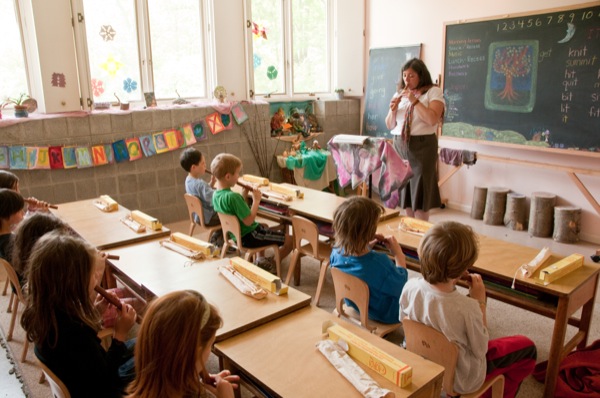In our increasingly complex world, the task of raising moral children has become a paramount concern for parents, educators, and communities alike. The Baha’i teachings offer profound insights into this critical endeavor, emphasizing moral education as a foundational aspect of nurturing future generations. Such teachings underscore the importance of cultivating virtues as essential characteristics, thus empowering children to become principled, caring, and responsible individuals who contribute positively to society.
One of the most pivotal concepts in the Baha’i Faith is the principle of the oneness of humanity. This tenet posits that all people, regardless of their backgrounds, are part of a single human family. This realization allows parents to instill in their children a sense of global consciousness and interconnectedness. By fostering empathy and compassion for others, children learn to appreciate diversity and engage in constructive dialogues with peers who may hold different beliefs or perspectives.
Equipped with an awareness of global interconnectedness, parents can begin to impart moral values through everyday activities that emphasize service to humanity. For instance, volunteering as a family or engaging in community service can provide practical experiences that teach children the significance of altruism. Such experiences not only strengthen familial bonds but also cultivate a sense of responsibility that lasts a lifetime.
Moreover, the Baha’i teachings advocate for the education of the whole child—intellectually, spiritually, and morally. This holistic approach to education encourages parents to create environments that support cognitive growth while simultaneously nurturing virtues such as honesty, perseverance, respect, and kindness. Engaging children in discussions around moral dilemmas can further stimulate critical thinking and help them navigate complex situations in a principled manner.
Indeed, moral education should commence at an early age. Baha’i teachings emphasize the importance of early childhood education in laying a solid foundation for character development. This period is not only crucial for intellectual growth but also for instilling virtues. Activities that promote collaborative play, for example, can cultivate qualities like teamwork and sharing. Such formative experiences can lay the groundwork for a child’s moral compass.
As children grow, the Baha’i teachings encourage parents to model ethical behavior. Children are keen observers and often emulate the actions and attitudes of their caregivers. By exemplifying honesty, integrity, and respect in their own lives, parents serve as powerful role models. This intergenerational transmission of values is essential; when children witness their parents adhering to these principles, they are more likely to internalize them.
Additionally, the significance of prayer and spiritual practices cannot be underestimated. The Baha’i Faith places a strong emphasis on prayer as a means of connecting with the Divine and seeking guidance. Encouraging children to participate in regular prayer and spiritual reflection allows them to cultivate their inner moral compass. Through these practices, children learn the importance of maintaining a relationship with their Creator, thus enabling them to develop a nuanced understanding of right and wrong that transcends situational ethics.
Incorporating stories and principles from Baha’i scripture and literature can further enrich a child’s moral education. Tales of virtuous characters and their moral choices can provide children with relatable scenarios that elevate their understanding of ethical principles. Engaging children in discussions about these stories fosters a deeper appreciation for moral teachings and encourages them to apply these lessons in their own lives.
Additionally, the importance of community is a vital aspect of the Baha’i teachings as it relates to raising moral children. The Baha’i community places a premium on collaboration and unity, creating spaces where children can learn from one another in diverse environments. Although societies may sometimes create barriers based on race, socioeconomic status, or belief, the Baha’i community actively promotes inclusiveness, thereby allowing children to form lifelong friendships and understand the beauty of shared humanity.
Fostering an environment where moral discussions are encouraged can also be incredibly beneficial. Establishing family meetings or casual conversations around a dinner table to address moral questions can stimulate critical thinking. This method equips children not only with answers but the ability to articulate their thoughts and beliefs. In doing so, they learn the importance of respectful discourse, an essential skill in an increasingly polarized world.
Furthermore, the Baha’i teachings advocate for the balanced development of individual and collective interests. By recognizing that one’s personal morality is inherently linked to the welfare of the community, children can learn to balance their own needs with the needs of others. This understanding cultivates a sense of justice and equity—qualities that are imperative in both personal relationships and societal interactions.
Ultimately, raising moral children in accordance with Baha’i principles involves a multifaceted approach that takes into account intellectual, spiritual, and social development. It requires commitment and dedication from parents who are willing to nurture and guide their children through diverse experiences—each intentionally designed to foster moral discernment.
In conclusion, the teachings of the Baha’i Faith offer an invaluable framework for instilling ethical values in children. Through modeling virtuous behavior, engaging in service, promoting holistic education, and fostering a sense of community, parents can raise a generation of morally grounded individuals. As stewards of the earth, these children can then grow to become compassionate leaders, poised to contribute to the betterment of humanity.
